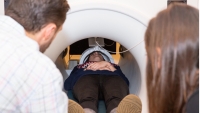Our Research

Dr. Simpson leads an outstanding team of psychiatrists, psychologists, and research scientists. The goal is to discover the genetic and neurobiological mechanisms underlying OCD and anxiety and to develop new diagnostics and treatments tailored to the individual and accessible to the community. In our research efforts, we collaborate with leading experts at Columbia and universities across the United States and the world.